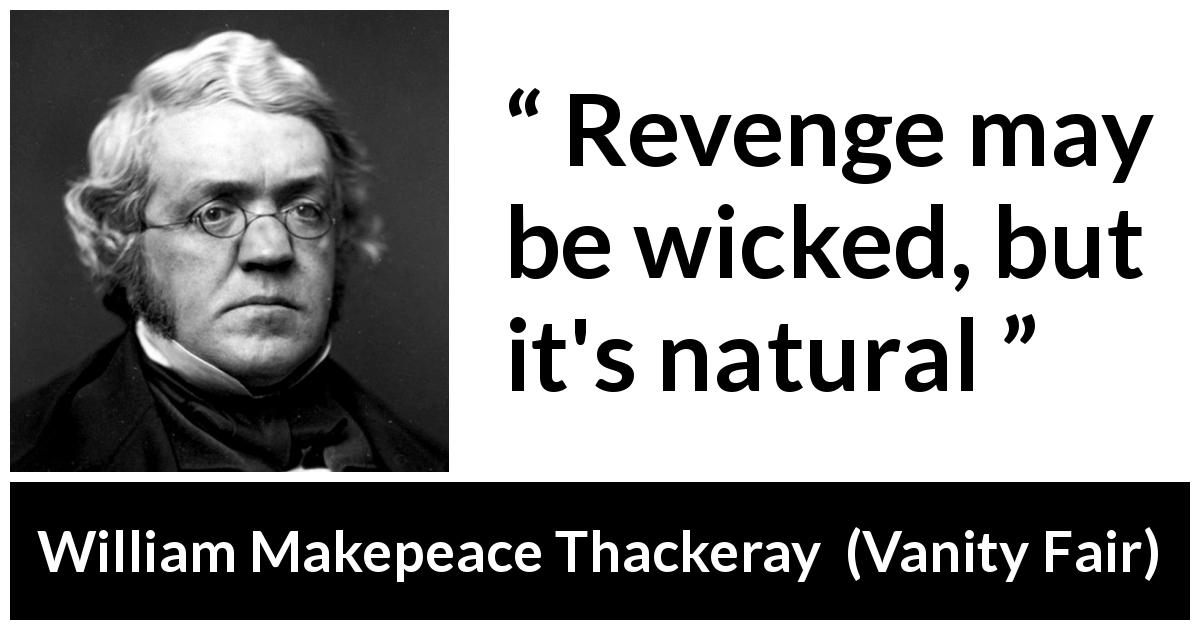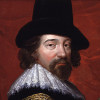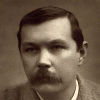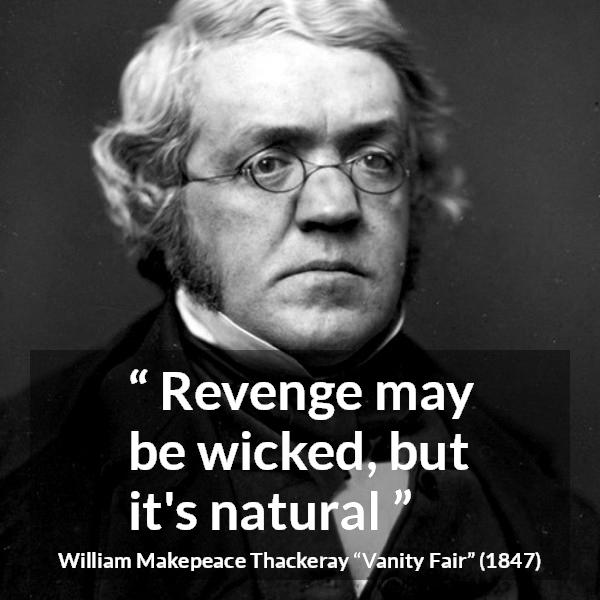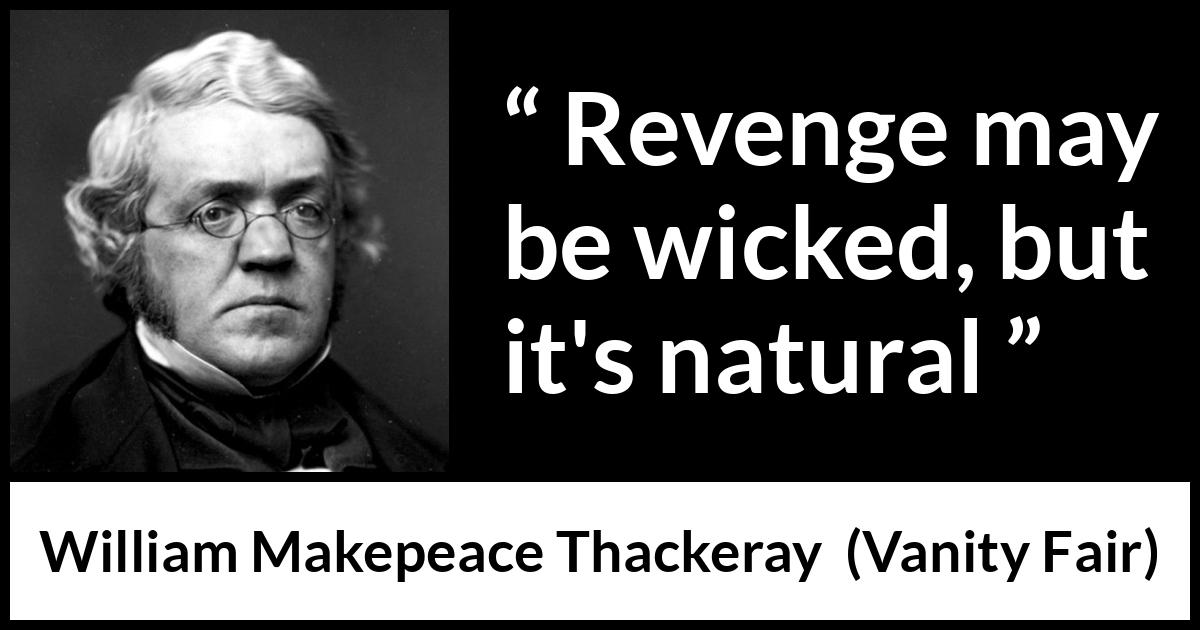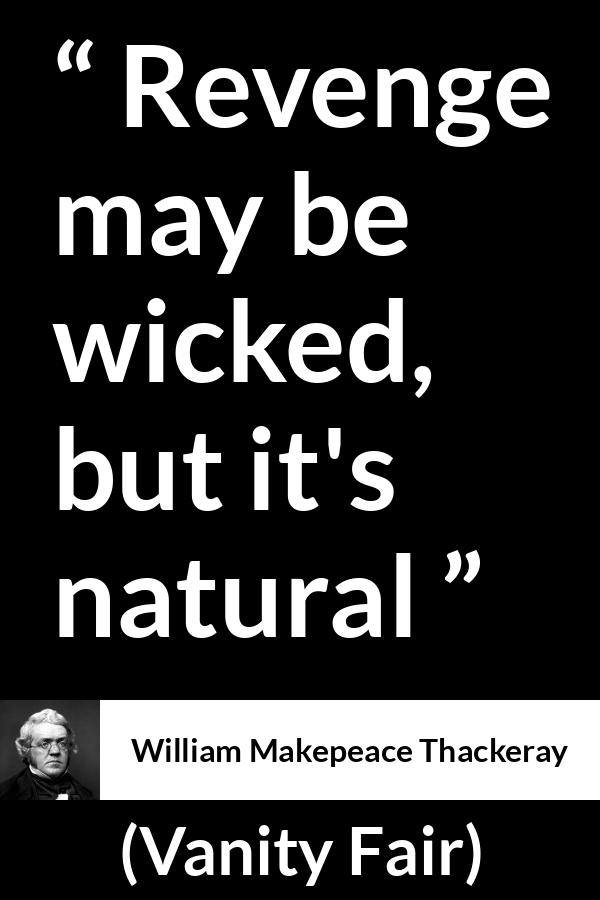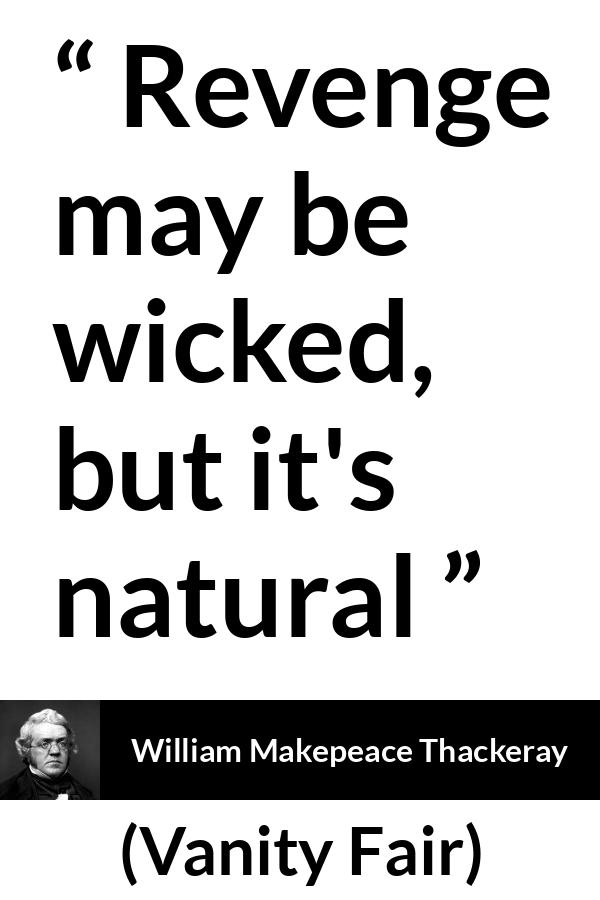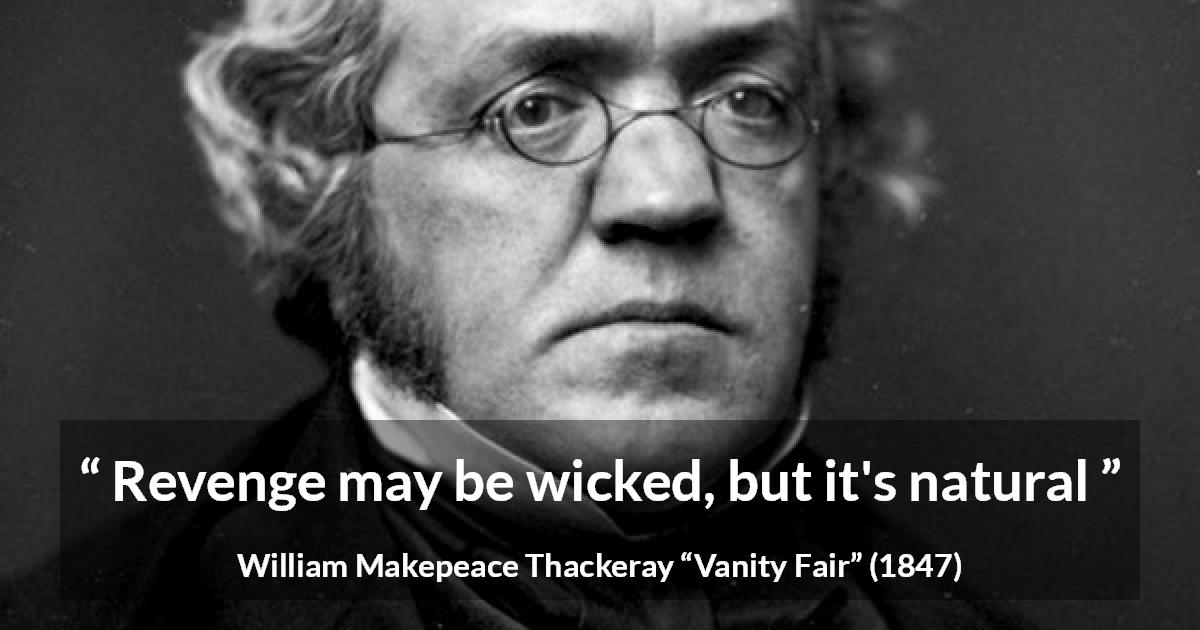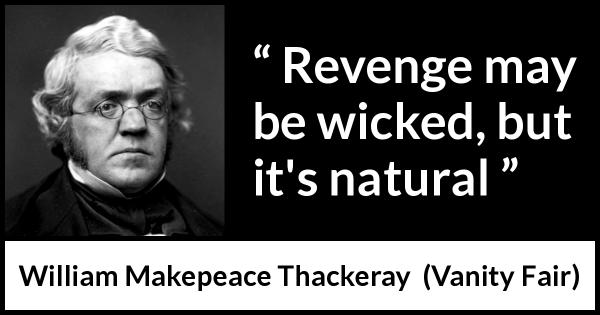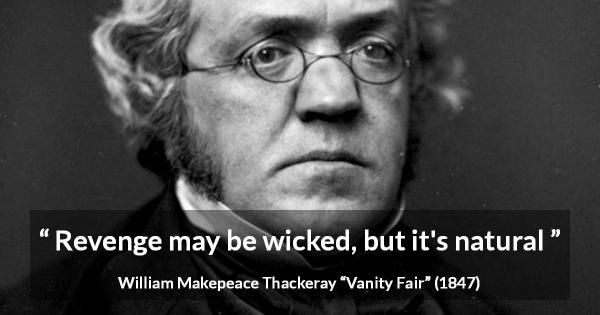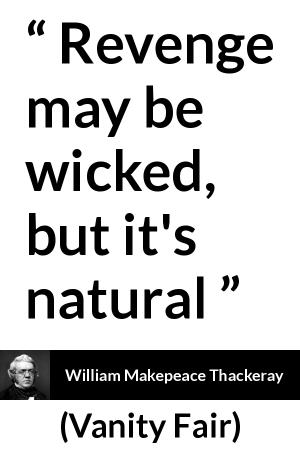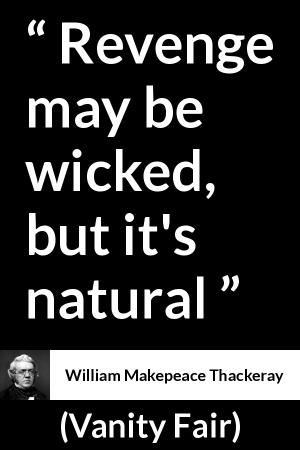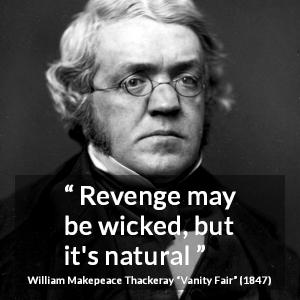“ Revenge may be wicked, but it's natural ”
William Makepeace Thackeray, Vanity Fair (1847). copy citation
| Author | William Makepeace Thackeray |
|---|---|
| Source | Vanity Fair |
| Topic | revenge evil nature |
| Date | 1847 |
| Language | English |
| Reference | |
| Note | |
| Weblink | https://www.gutenberg.org/files/599/599-h/599-h.htm |
Context
“cried Miss Sedley; for this was the greatest blasphemy Rebecca had as yet uttered; and in those days, in England, to say, "Long live Bonaparte!" was as much as to say, "Long live Lucifer!" "How can you—how dare you have such wicked, revengeful thoughts?"
"Revenge may be wicked, but it's natural," answered Miss Rebecca. "I'm no angel." And, to say the truth, she certainly was not.
For it may be remarked in the course of this little conversation (which took place as the coach rolled along lazily by the river side) that though Miss Rebecca Sharp has twice had occasion to thank Heaven, it has been, in the first place, for ridding her of some person whom she hated, and secondly, for enabling her to bring her enemies to some sort of perplexity or confusion; neither of which are very amiable motives for religious gratitude, or such as would be put forward by persons of a kind and placable disposition.” source
"Revenge may be wicked, but it's natural," answered Miss Rebecca. "I'm no angel." And, to say the truth, she certainly was not.
For it may be remarked in the course of this little conversation (which took place as the coach rolled along lazily by the river side) that though Miss Rebecca Sharp has twice had occasion to thank Heaven, it has been, in the first place, for ridding her of some person whom she hated, and secondly, for enabling her to bring her enemies to some sort of perplexity or confusion; neither of which are very amiable motives for religious gratitude, or such as would be put forward by persons of a kind and placable disposition.” source
